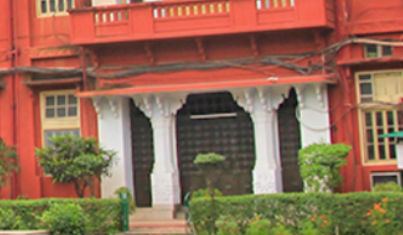
(Photo : dst.gov.in)
Bose Institute,of Science and Technology
- Scientists from the Bose Institute have studied the survival strategies of archaea, ancient organisms that inhabit extreme environments.
- The research focused on the VapBC4 TA system in Sulfolobus acidocaldarius, an archaeon that thrives in high-temperature environments.
- The VapC4 toxin in this system halts protein production, helping the organism form resilient cells and withstand heat stress.
- This study contributes to our understanding of life's resilience in harsh conditions and has potential applications in biotechnology.
In a groundbreaking study, scientists from the Bose Institute, an autonomous body under the Department of Science and Technology (DST), have delved into the world of archaea, a domain of ancient organisms. The objective of their research was to uncover the survival strategies of these microorganisms, which have adapted to harsh conditions through their toxin-antitoxin (TA) systems.
Archaea, derived from the Greek word meaning ancient things, are among the oldest life forms on Earth. They are part of a group known as the third domain of life. These organisms are known to inhabit some of the most extreme environments on our planet, making them an ideal subject for studying survival strategies in harsh conditions.
The research team, spearheaded by Dr. Abhrajyoti Ghosh from the Department of Biological Sciences, focused on how specific archaea toxin-antitoxin (TA) systems aid these organisms in withstanding high temperatures.
Survival in Extreme Heat
Their findings, published in the scientific journal mBio, provide a fascinating insight into the survival mechanisms of these ancient organisms. The team's research centered on a heat-loving archaeon known as Sulfolobus acidocaldarius. This organism thrives in environments with hot volcanic pools, such as Barren Island in the Andaman and Nicobar Islands in India, and other volcanic regions worldwide, where temperatures can reach up to 90 degrees Celsius.
The scientists conducted a detailed analysis of the VapBC4 TA system in S. acidocaldarius, which aids survival in high-temperature environments. Their study revealed the crucial role this system plays during heat stress. The VapC4 toxin, part of this system, performs several functions, including halting protein production, assisting the organism in forming resilient cells, and influencing biofilm creation.
When the cell experiences heat stress, a stress-activated protease, not yet identified in archaea, may break down the VapB4 protein, which otherwise regulates the VapC4 toxin's activity. Once VapB4 is eliminated, the VapC4 toxin is released and can stop protein production.
The Formation of Persister Cells
This cessation of protein production is a survival strategy that enables cells to form persister cells during stress. These persister cells enter a resting state, conserving energy and avoiding the production of damaged proteins. This state of dormancy allows them to endure harsh conditions until the environment becomes more favorable, the scientists explained.
This study's findings echo the survival strategies of other organisms in history. For instance, the Deinococcus radiodurans bacterium, known as the world's toughest bacterium, can survive extreme radiation, dehydration, vacuum, and cold. It uses multiple copies of its genome to repair DNA damaged by radiation. Similarly, tardigrades, also known as water bears, can survive in extreme conditions by entering a state of cryptobiosis, virtually halting their metabolism.
The research conducted by Dr. Ghosh and his team adds to our understanding of how life can persist in the harshest conditions. It also opens up potential applications in biotechnology, where these survival strategies could be harnessed for various purposes, such as the development of heat-resistant enzymes for industrial processes.
* This is a contributed article and this content does not necessarily represent the views of btin.co.in









